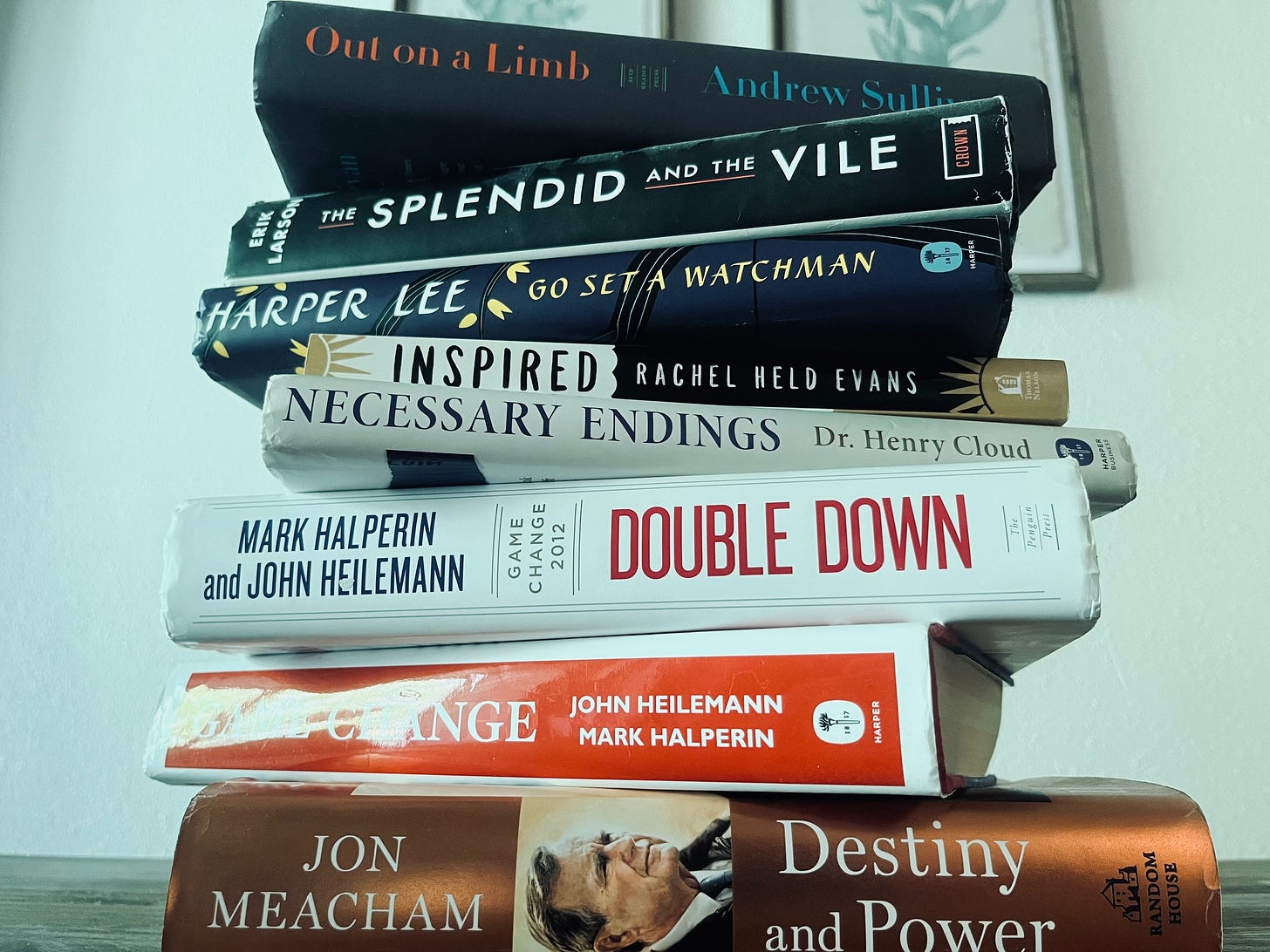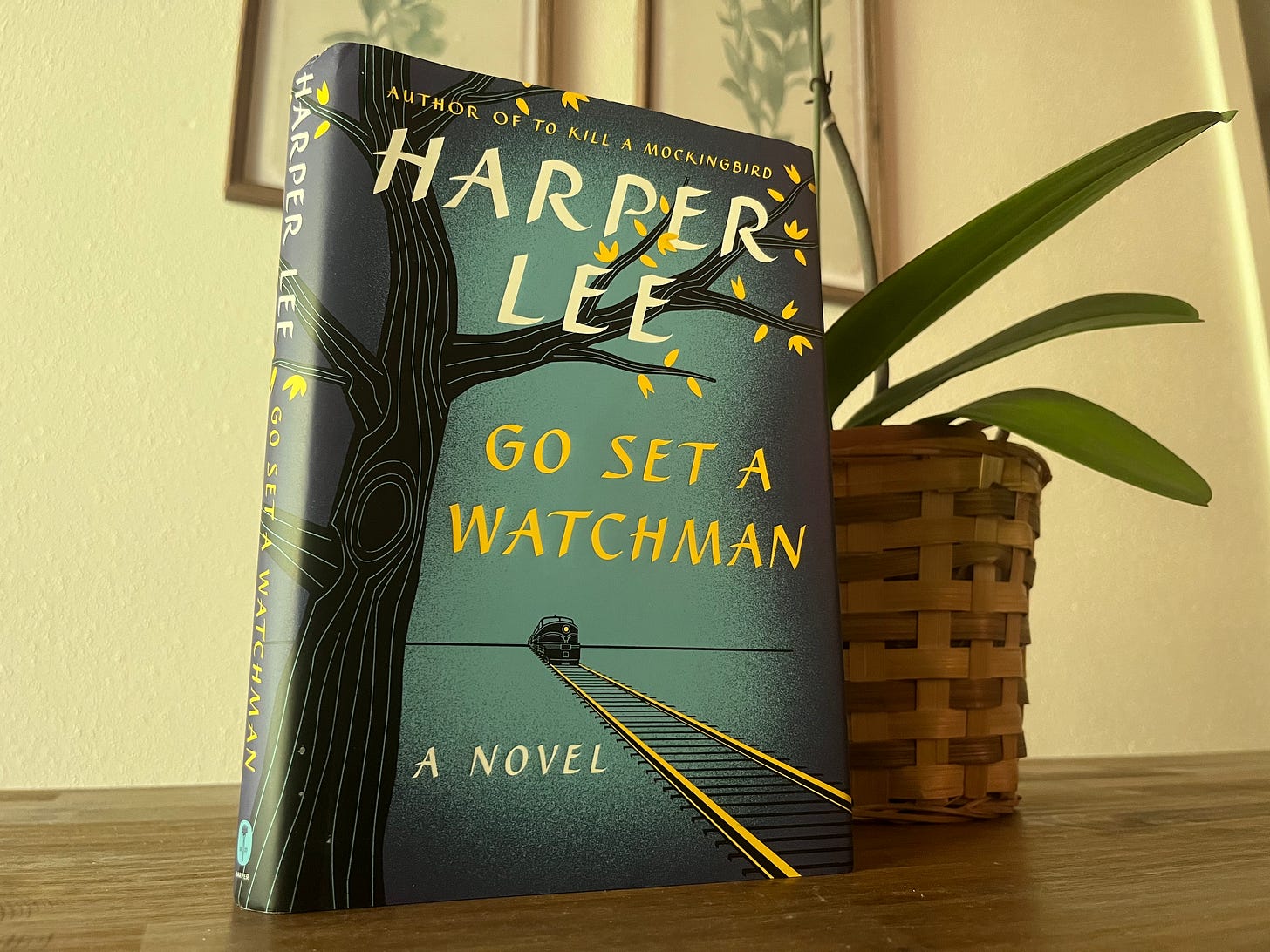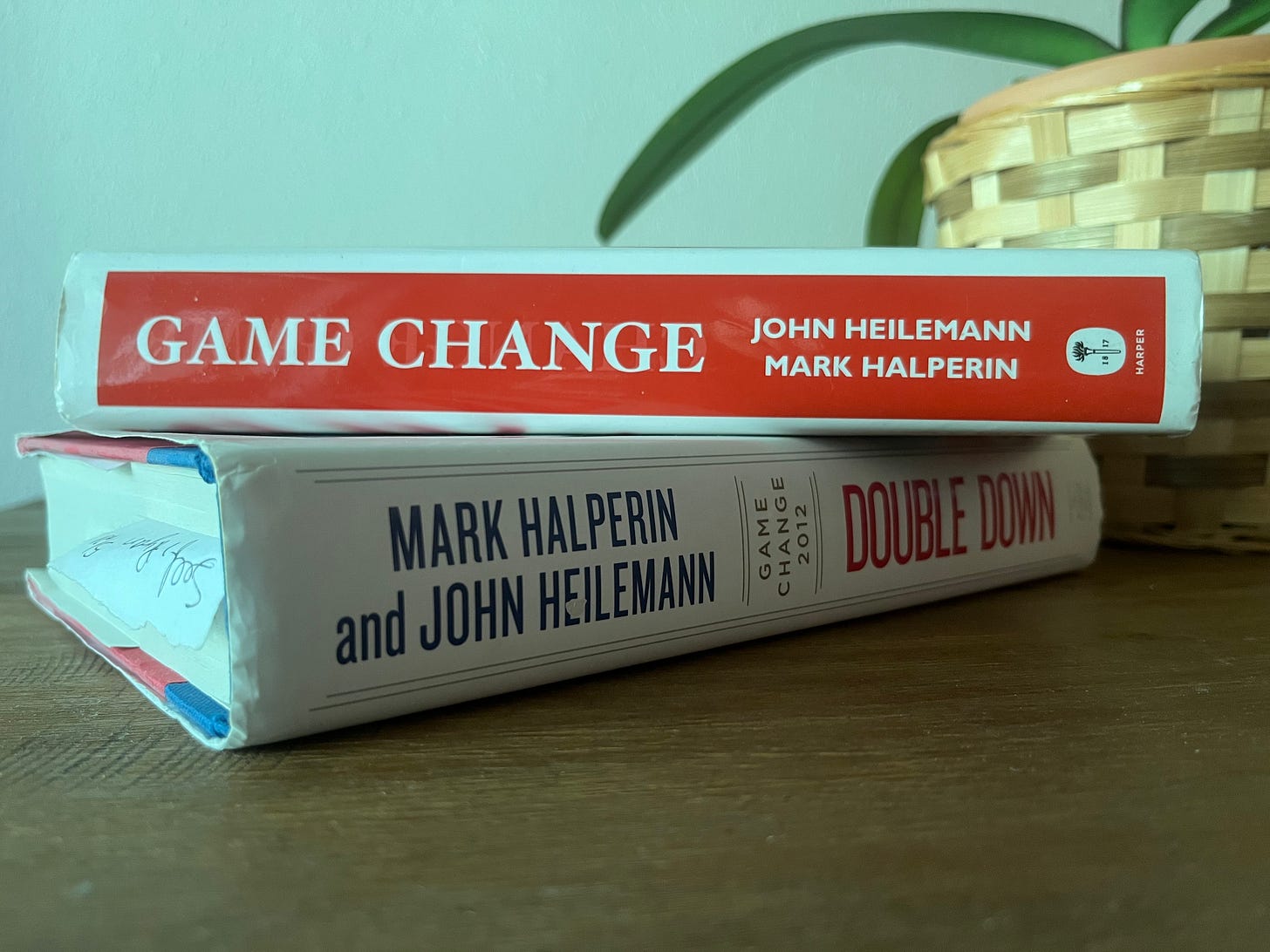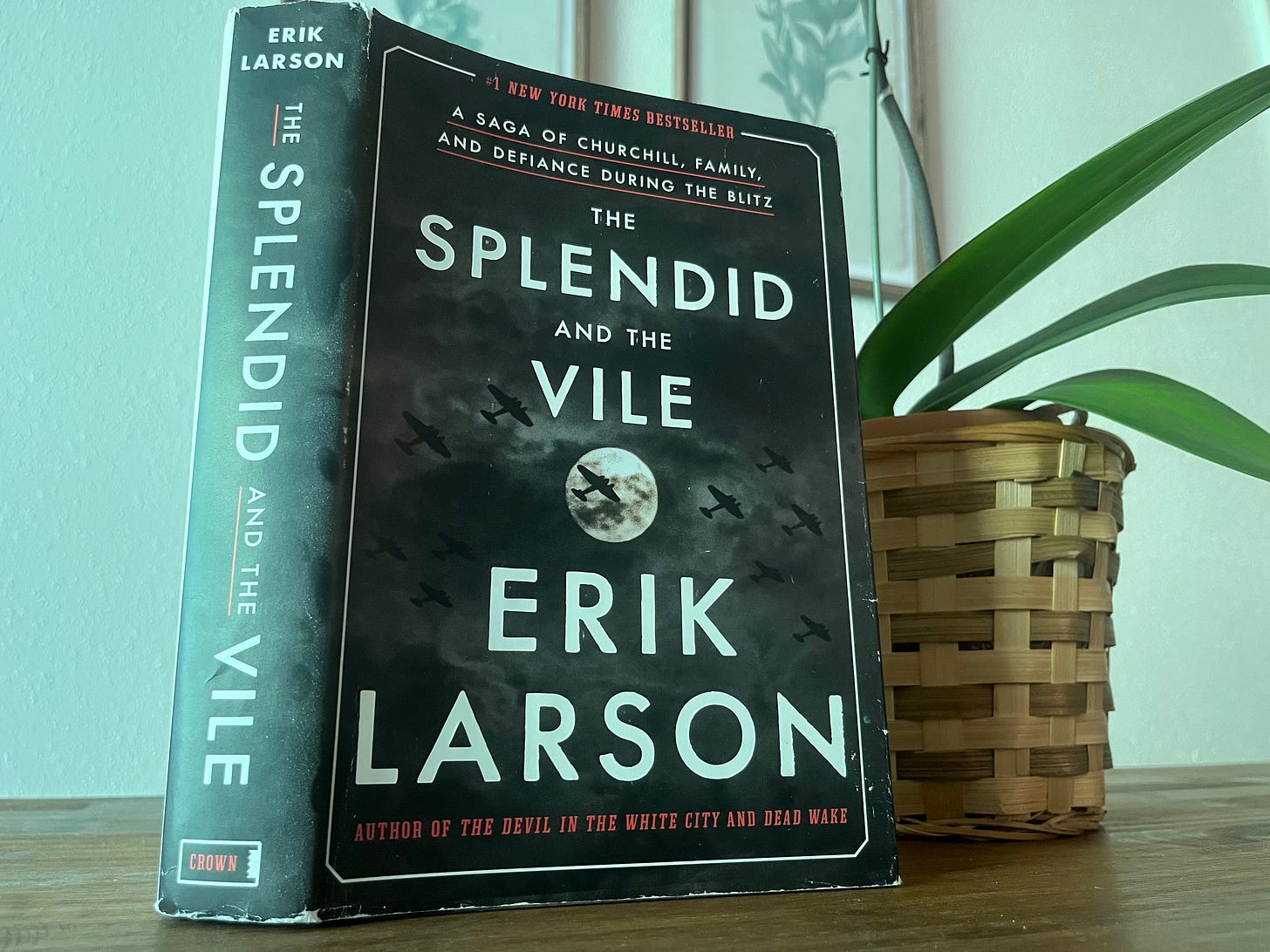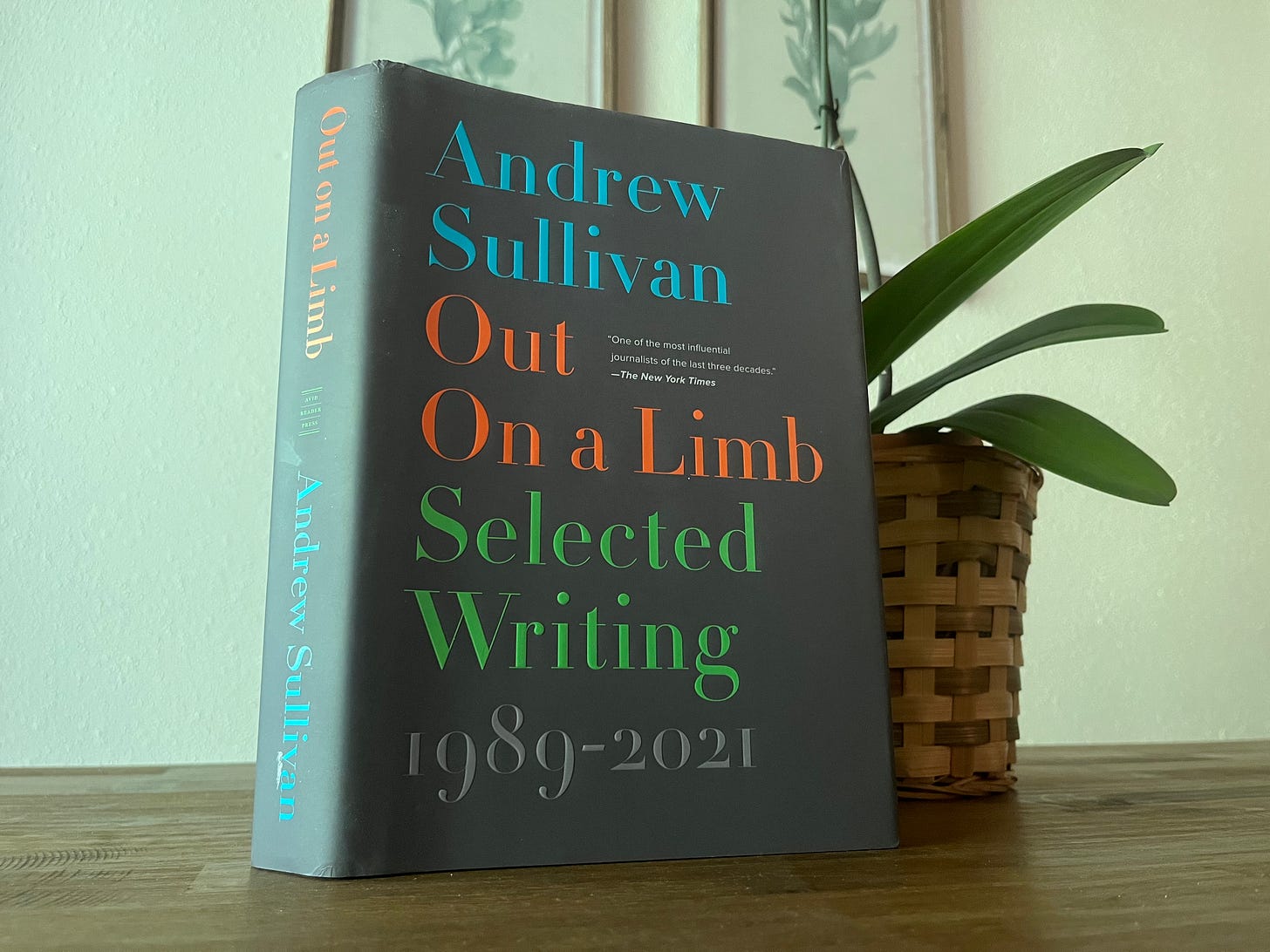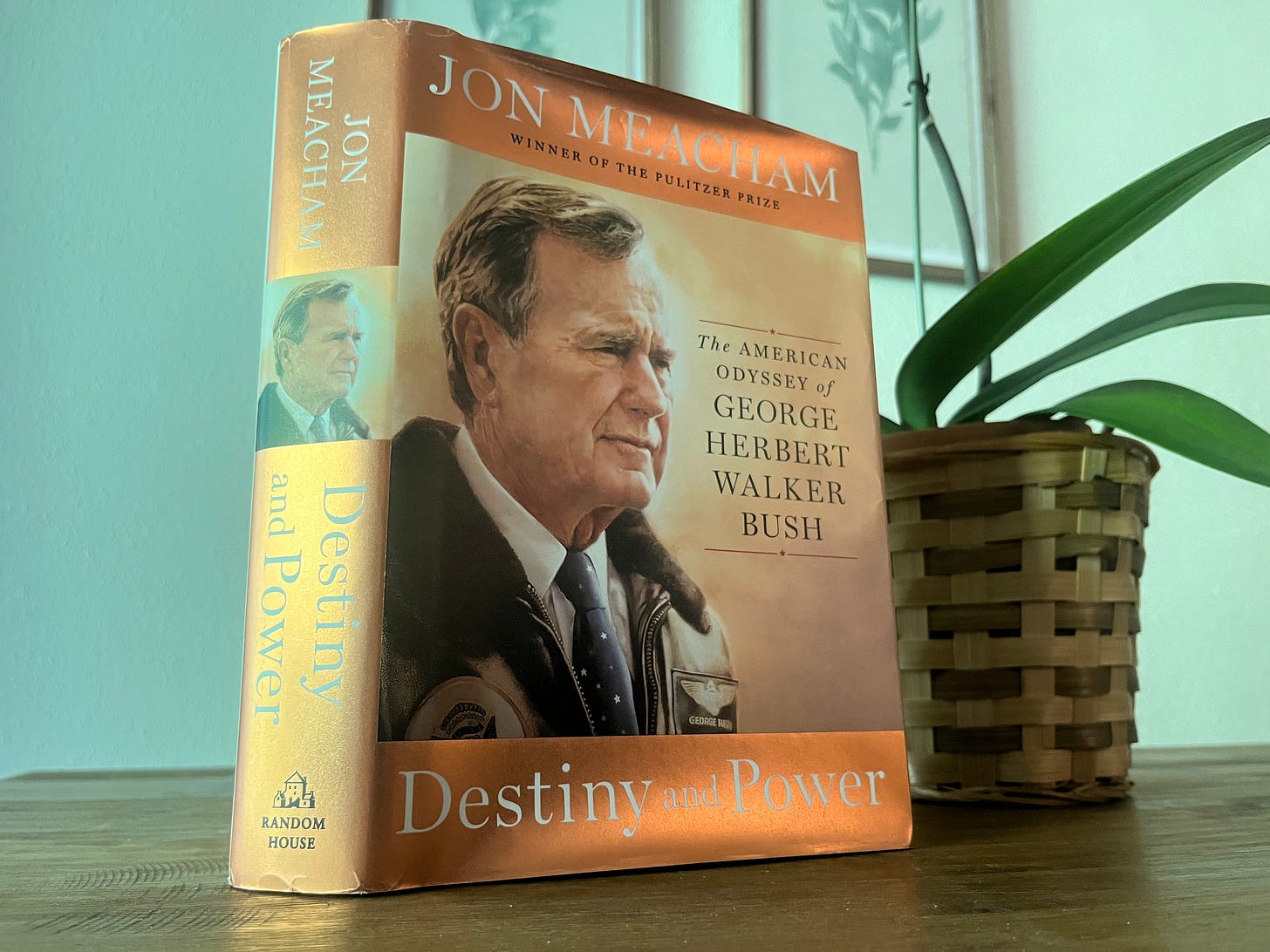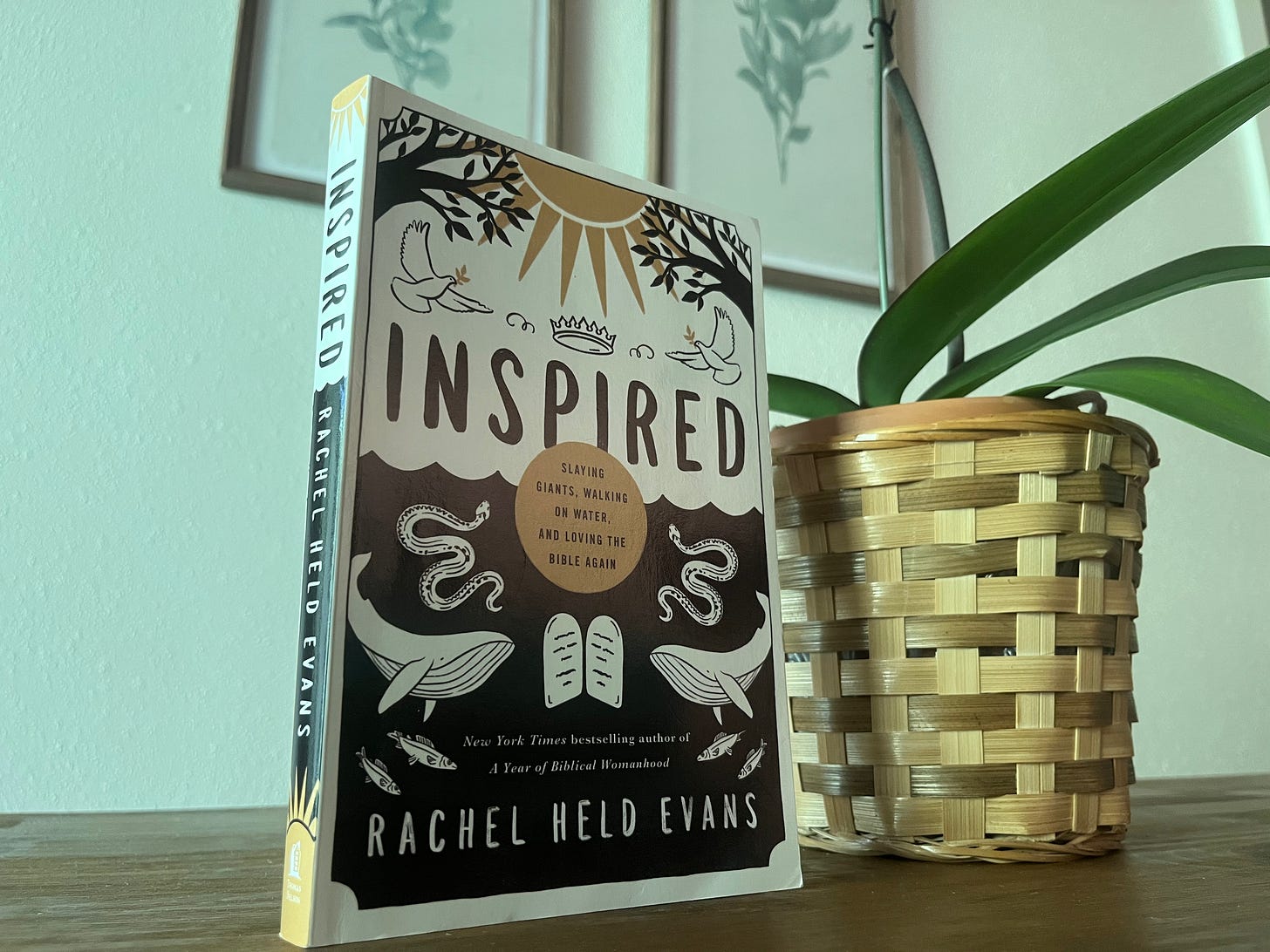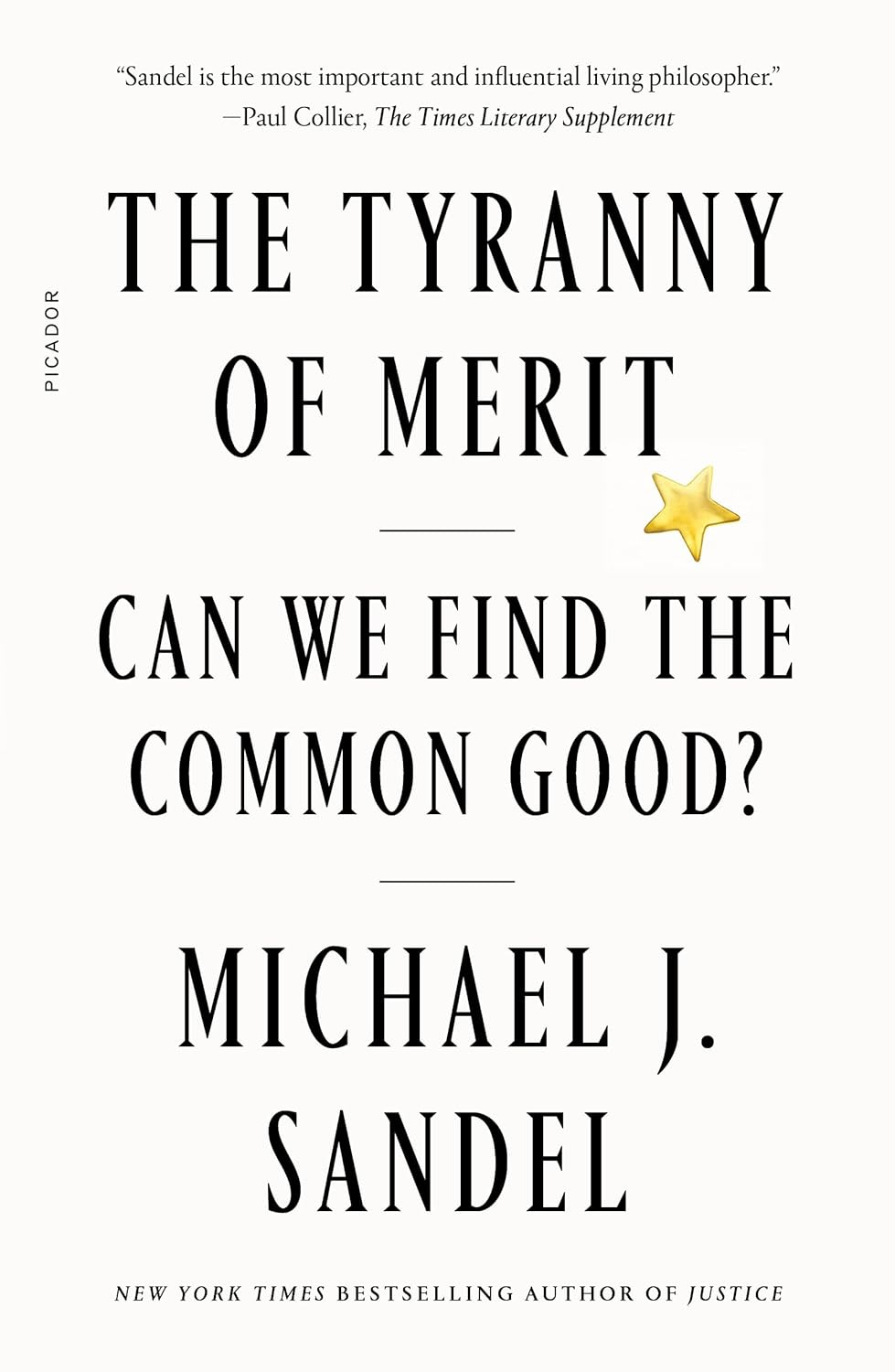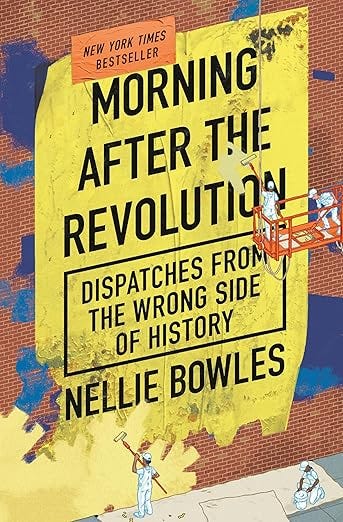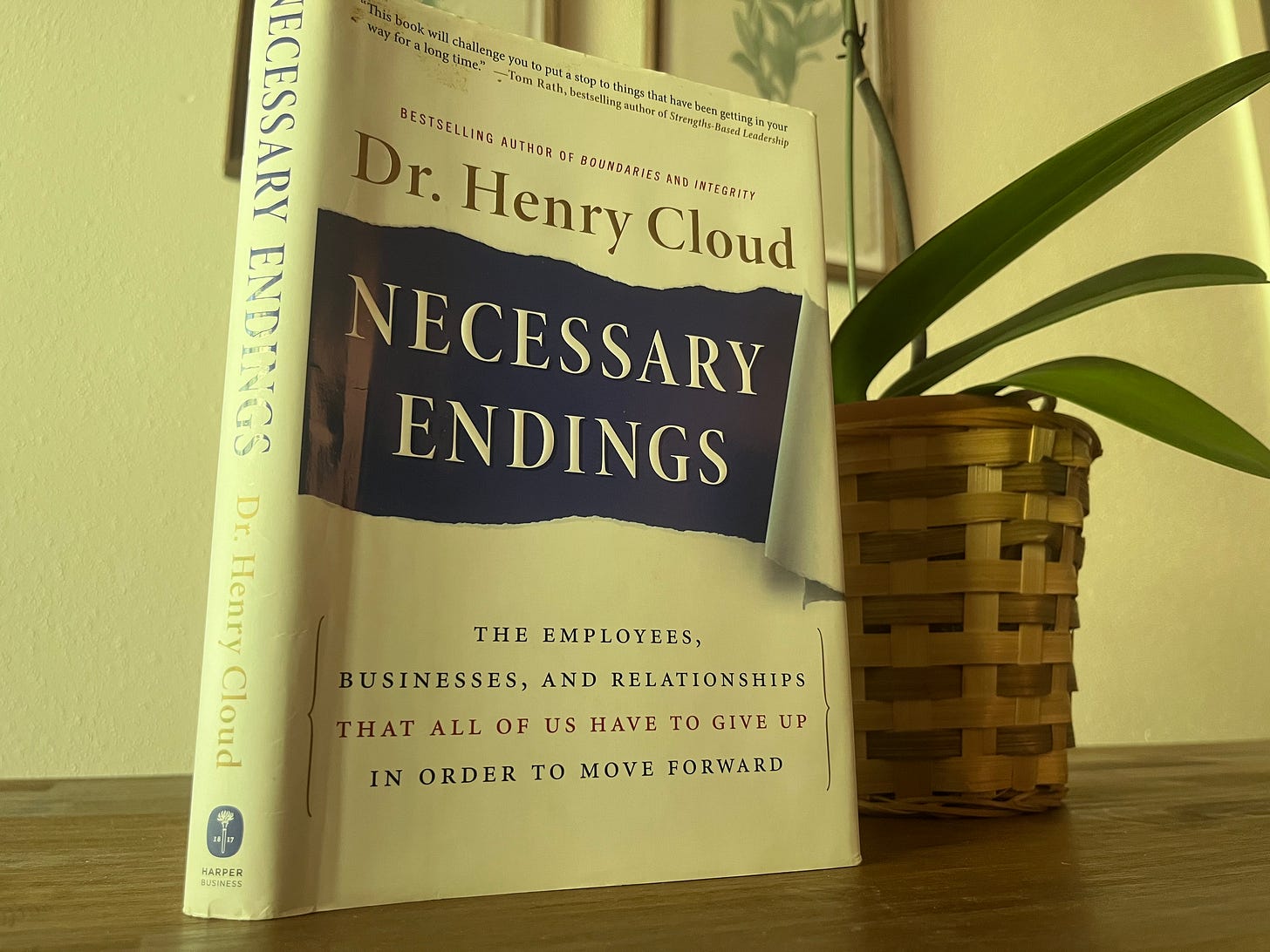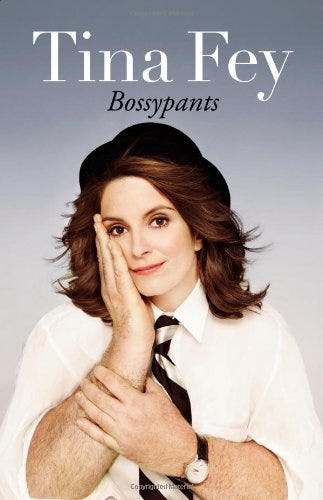The New York Times did not consult me for their Top 100 Books list
But I am going to share my picks anyway.
The Gray Lady recently released their list of “100 Best Books of the 21st Century,” based on input from such literary luminaries as Stephen King, Roxane Gay and Carrie Bradshaw from “Sex and the City.” These lists (like the Apple Music Best 100 Albums) often serve as a reminder of how apparently uncultured I am considering I had only read a handful of the books in the Top 100.1
While I was not invited to weigh in on what made the final list (an egregious oversight on The New York Times’ part), I decided to release my personal list of the Best 100 Books of the 21st Century, releasing a list of 10 books each day over the next week. Just kidding. I’m going to share my top 10 (in no particular order) and call it a day.
Please share in the comments if you’ve read/loved/hated any of these books or any of the books on The New York Times list.
“Go Set a Watchman” by Harper Lee(?)
Some books stay with you not because they are exceptionally good (I would not argue this one is)2 but because of how they speak to you at a specific time and place in your life. “Scout” Finch is one of my favorite literary characters and I felt this deep connection with her as I read the book. Scout is returning to visit her hometown of Maycomb weeks after the landmark Supreme Court decision, Brown v. Board of Education, which ruled school segregation unconstitutional. Scout is in her mid-20s, single and is now living in New York City. She is returning to her hometown realizing how much she has changed and how out-of-step she is with the larger community that raised her.
In the summer of 2015, when “Go Set a Watchman” was published, I returned to my hometown of Lubbock, Texas, in the weeks after the landmark U.S. Supreme Court ruling of Obergefell v. Hodges, which ruled bans against gay marriage unconstitutional. I was in my mid-20s, single and had just returned from an internship in Austin where I hoped to move after grad school. While not fully “out” as gay, I wrestled with a deep sense that I was no longer aligned with many of the members of the conservative community I grew up with. Scout’s bristling at questions of why she was still in her mid-20s and not married was something I deeply related to.
“Game Change” and “Double Down” by Mark Halperin and John Heilemann
I have read these definitive reports of the 2008 (Game Change) and 2012 (Double Down) presidential campaigns multiple times. It’s relaxing. It reminds me of simpler times. I go back and read certain sections at times, like the 2012 reporting on Obama and Biden’s complicated relationship. No reason. While I don’t hold the authors of these books in very high esteem, I do think these books are among the best accounts of the last two presidential elections that had any semblance of normalcy.
“The Splendid and the Vile” by Erik Larson
Non-fiction books about history is my favorite genre and my favorite author within that genre is Erik Larson. I’ve read nearly all of his work and my favorite is “The Splendid and the Vile,” which recounts Churchill’s efforts to keep Britain together during the blitzkrieg. Bill Gates named it one of his favorite books the year it came out and noted how it was a powerful story of resilience during an anxious time. Larson has an amazing ability to weave in a whole cast of characters with intersecting stories and lives that give a real sense of life during one of the most tumultuous periods in modern world history.
“Out on a Limb” by Andrew Sullivan
I have been an avid fan of Andrew Sullivan for years. Gay. Catholic. Conservative. Sullivan doesn’t fit into neat categories and his writing always reflects a unique perspective. Within the pages of my signed copy are essays that display a wide range of views coming from one individual: “The Abolition of Torture,” “How Did I Get Iraq Wrong?” “Why Obama Matters,” “Log Cabin Republican,” and “We All Live on Campus Now.” The book opens with what is arguably one of his most influential, “Here Comes the Groom,” written in 1989 for The New Republic, which made a conservative case for gay marriage.
“Destiny and Power: The American Odyssey of George Herbert Walker Bush” by John Meacham
I have particular affection for this book due to my affection for the subject. I attended the George H.W. Bush School of Government and Public Service and it’s difficult to graduate from the school without having a deep admiration for the life and legacy of the 41st president. WWII pilot shot down by Japanese soldiers. Successful businessman in West Texas. Ambassador to the United Nations. Director of the CIA. Vice President to Ronald Reagan. President during the final years of the Cold War and the fall of the Berlin Wall. George H.W. Bush led a truly remarkable life of public service.
His final years were when I attended the school that bore his name. During my second year, this book was published, and I was able to be in the audience for a book event with Jon Meacham. President and Barbara Bush sat a few rows ahead of me. Meacham began the evening by reading a love letter from George to Barbara and I watched as President Bush leaned his head toward Barbara as she kissed him on the cheek. I got to meet Meacham after the event and he was very gracious.
I was among the final class of students who took our class picture with President and Barbara Bush before they both passed away in 2018.
“Inspired: Slaying Giants, Walking on Water and Loving the Bible Again” by Rachel Held Evans
Rachel Held Evans’ work has helped me sort many questions I’ve had about my faith.3 I remember first becoming aware of her when she spoke at my undergraduate college, Abilene Christian University. “Inspired” is an exploration of what the Bible is and how it is meant to be read. Evans’ writing always has a beautiful quality to it, both literary and down-to-earth. I was not aware of how much of an impact Evans had until she passed away suddenly in 2018. I took the opportunity to suggest this book to my church small group. Many people loved it. Some did not. One member left the church over it. So there’s that.
“The Tyranny of Merit” by Michael J. Sandel
I generally believe that a meritocracy is the best system but this book caused me to question those assumptions. Written by Harvard professor Michael J. Sandel, the book is hefty in its ideas while still being accessible and enjoyable to read. This book further opened my eyes to how a meritocracy can be damaging to those who don’t happen to possess the skills deemed valuable by society. It’s yet another book that confronts me with the fact that a large majority of Americans did not attend college and yet the messaging around college is that you can’t succeed or make a meaningful contribution to society without a degree. Then there’s the group that makes it into elite institutions but must deal with the toxic striving culture that burns people out before they’ve reached graduation. While I didn’t agree with every conclusion in the book, it did give me plenty to think about.
“The Morning After the Revolution” by Nellie Bowles
Nellie Bowles is a joy and a treasure and if you are not subscribed to her weekly TGIF news roundup you need to change that right away. Bowles is a sixth-generation San Francisco native who watched the world around her collectively lose its mind in 2020. As a reporter for The New York Times at the time, she struggled to garner the attention of her editors while pitching stories about the autonomous zones of Seattle, Antifa rallies, police abolition and other causes. Her hometown of San Francisco also provided plenty of fodder. Much of the stories left on the cutting room floor formed the basis of this book, which provides real reporting with some of Bowles’ classic snark.
“Necessary Endings” by Dr. Henry Cloud
This is the only “self-help” adjacent book on this list but it’s one I have recommended to multiple people. Dr. Henry Cloud (whose co-authored, “Boundaries,” which I also highly recommend) is a psychologist turned business consultant who writes about the moments when it is necessary to close a chapter: a job that is no longer fulfilling, a relationship that is toxic or has just run its course, an employee who isn’t getting better despite plenty of time and coaching. There’s so much wisdom in this book and I find myself returning to “Necessary Endings” often. Whether figuring out a major life change or just whether to part ways with a friendship that isn’t beneficial anymore, I cannot recommend this book highly enough.
“Bossypants” by Tina Fey
I have so many positive associations with this book. I initially read it while on a cruise, which was enjoyable until I got to the chapter about Fey’s terrifying experience on a similar cruise that had to be evacuated due to a fire. I also bought the audiobook and listened to it with a friend on a cross-country road trip to Nashville for another friend’s wedding. The chapter on Fey’s first job out of college is one of my favorites. I found the chapter especially helpful as I read it for the first time while in my first job as a book publicist.
In honor of this book and Fey’s comedic legacy, here is a collection of some of the best moments from “30 Rock.”
Honorable Mentions I Have Reviewed Before
“This Town” by Marc Leibovich
"Troubled" by Rob Henderson
Those books are #36 “Between the World and Me” and #21 “Evicted.” I’m currently reading #50 “Trust” and "#46 “The Goldfinch.”
There’s plenty of controversy around this book and the reason I put a question mark on the author’s name is because how the book came to be appears to be a bit murky.
I would add Pete Enns and Rob Bell to this list.





